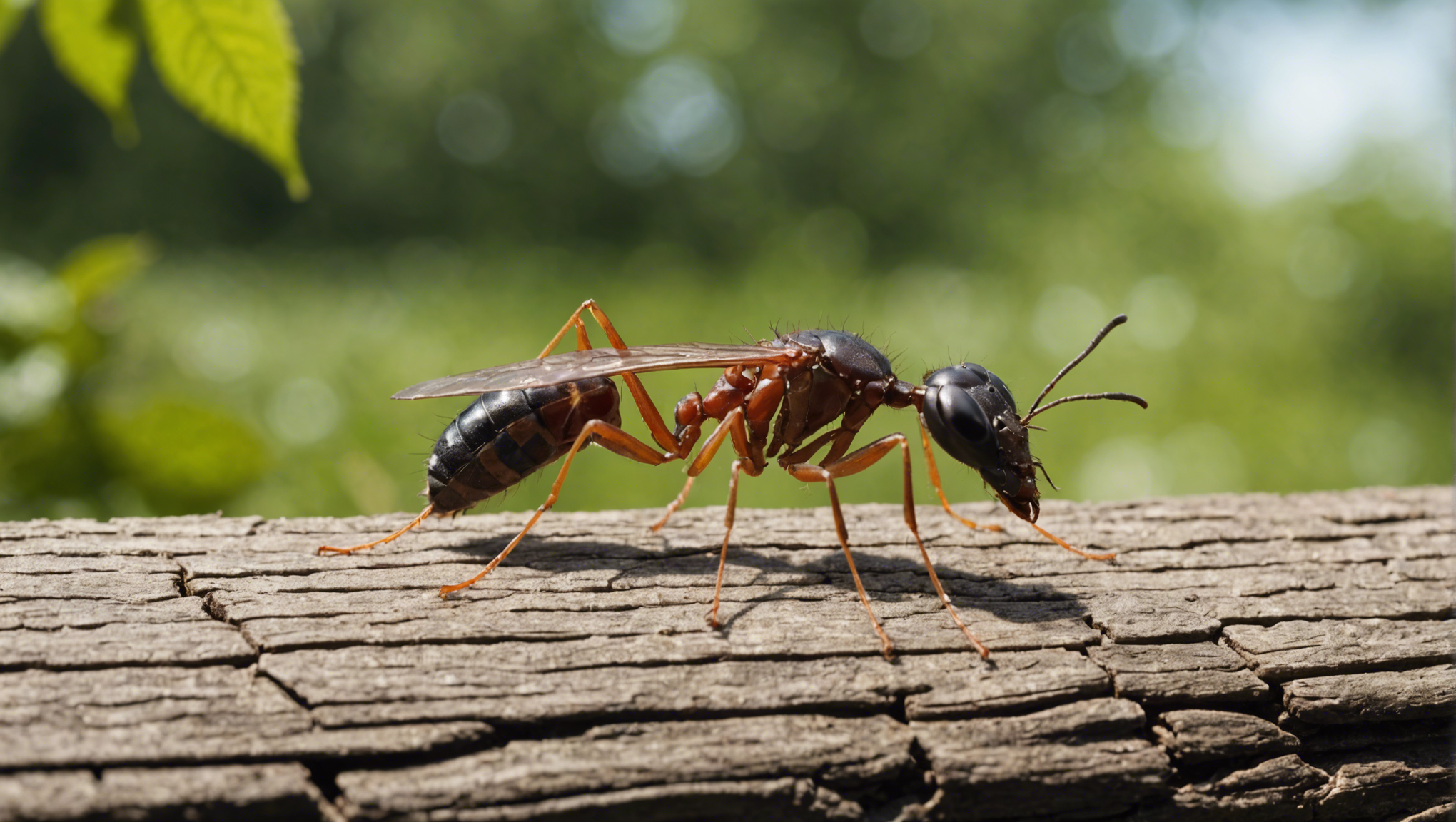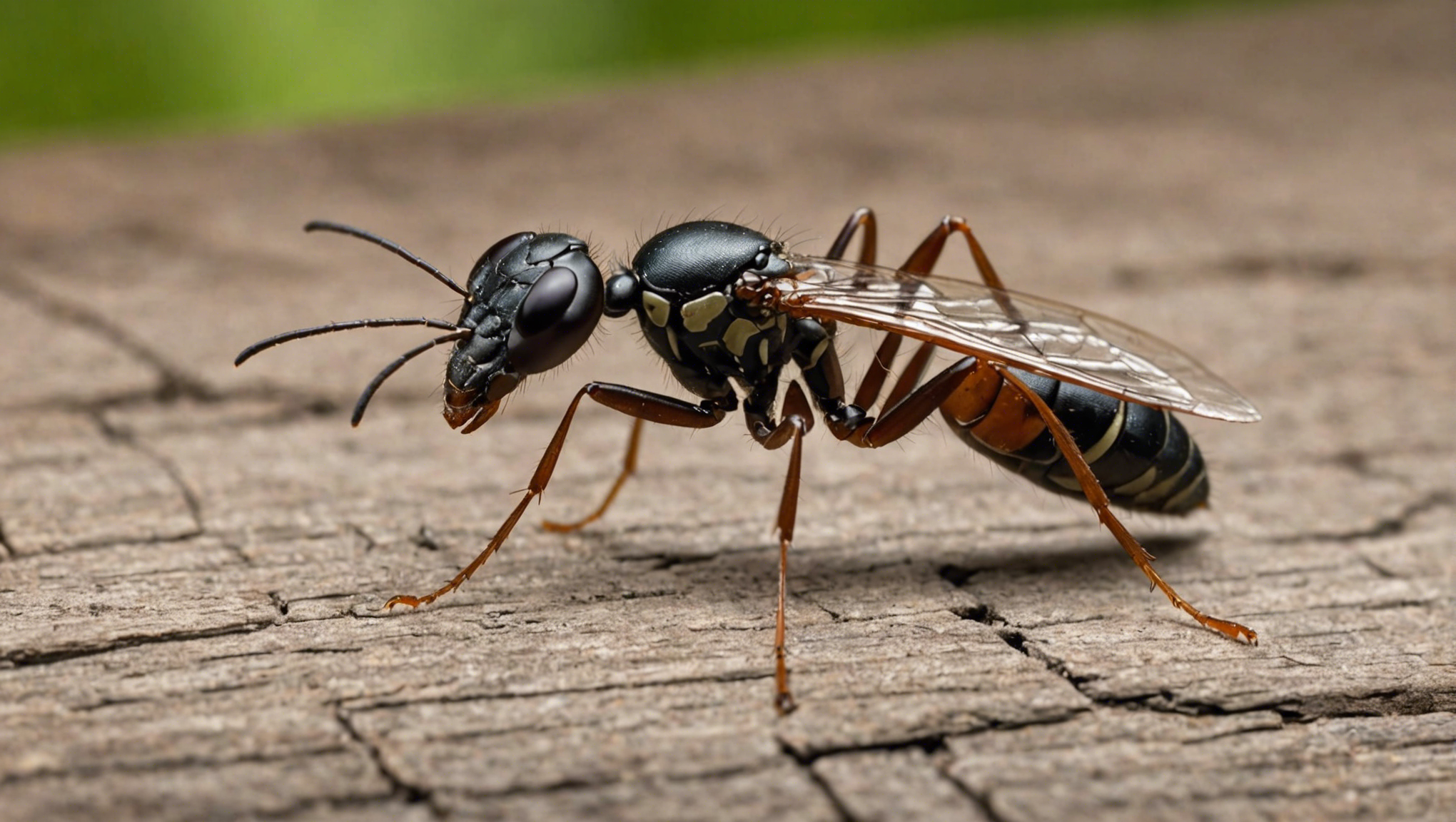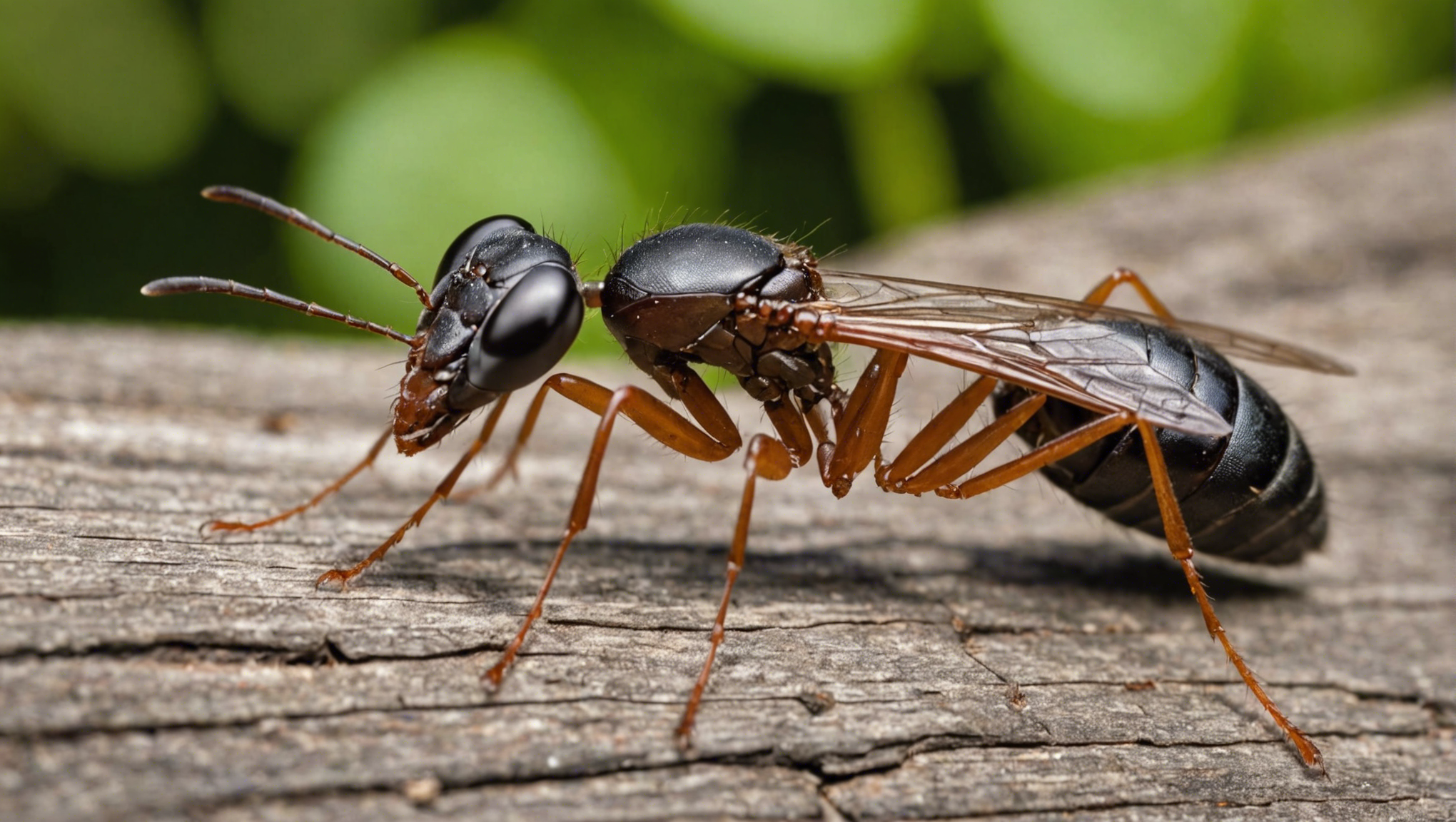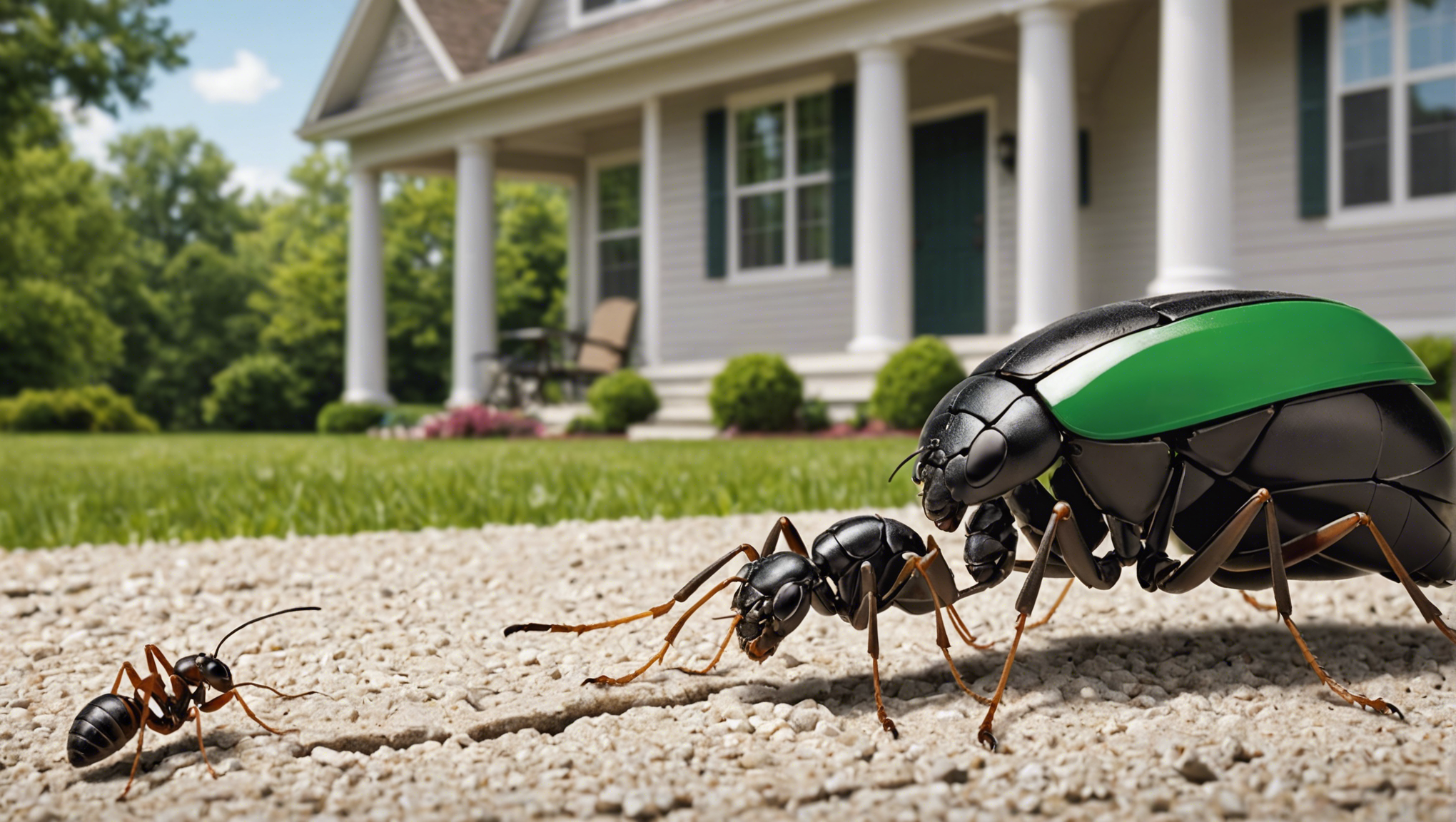Are you tired of battling summer pests like ants, mosquitoes, and flies? Learn how to keep them away with these simple tips!
Tips for repelling ants without harmful chemicals

Pest-Repelling Plants
One effective and eco-friendly way to keep ants away is by planting natural deterrents around your home. Certain plants like lavender, peppermint, and spearmint are known for their ability to repel ants due to their strong scents.
Essential Oils as a Natural Repellent
Essential oils such as tea tree oil, citrus oil, and cinnamon oil can be mixed with water to create a potent solution that repels ants without harming them. Simply spray this mixture along entry points and ant trails to keep them at bay.
Vinegar Solution for Ant-Proofing
A simple yet effective solution is a mixture of equal parts water and white vinegar. This concoction not only acts as a cleaning agent but also disrupts ant pheromone trails, deterring them from entering your living spaces.
Caulking and Sealing Cracks
Ants are notorious for finding their way into homes through tiny cracks and crevices. By regularly inspecting and caulking these entry points, you can prevent ants from gaining access to your property, reducing the need for chemical sprays.
Natural Ant Bait Stations
Instead of using harmful chemical ant baits, consider creating your DIY bait stations using a mixture of sugar, borax, and water. Place these stations strategically to attract ants away from high-traffic areas.
Maintaining Cleanliness and Food Storage
Ants are often attracted to food sources left out in the open. By keeping your kitchen clean, storing food in airtight containers, and promptly fixing any leaks or spills, you can significantly reduce the chances of an ant infestation.
Preventing mosquito bites: a comprehensive guide

Mosquitoes are not only annoying insects but can also pose health risks due to their bites. Preventing mosquito bites is essential to avoid diseases they may transmit. Here are some effective strategies to keep these pests at bay:
Understanding Mosquito Behavior
Mosquitoes are most active during dawn and dusk. Understanding their behavior patterns can help you take necessary precautions during these high-risk times. They are attracted to standing water, so removing any sources of stagnant water around your home can reduce the mosquito population.
Wearing Protective Clothing
One of the most straightforward ways to prevent mosquito bites is by wearing long-sleeved shirts, long pants, and socks when outdoors, especially in mosquito-infested areas. Light-colored clothing can also help repel mosquitoes.
Using Insect Repellents
Insect repellents containing DEET, picaridin, or oil of lemon eucalyptus are effective in keeping mosquitoes away. Be sure to follow the instructions on the product label and reapply as directed.
Securing Your Home
Keep mosquitoes from entering your home by ensuring that windows and doors have tight-fitting screens without holes. Repair any damaged screens to prevent these pests from sneaking indoors.
Maintaining Your Outdoor Space
Regularly mow your lawn and trim vegetation to eliminate hiding spots for mosquitoes. Use mosquito-repellent plants such as lavender, marigold, or citronella to create a natural barrier against these pests.
Professional Pest Control Services
If you’re dealing with a severe mosquito infestation that regular preventive measures can’t address, consider hiring professional pest control services. They can assess the situation and provide tailored solutions to eliminate mosquitoes from your property.
By implementing these strategies and being proactive in preventing mosquito bites, you can enjoy the outdoors without the nuisance and potential health risks associated with these pesky insects. Stay informed and take necessary precautions to protect yourself and your loved ones from mosquito-borne diseases.
Natural remedies for keeping flies out of your home

Flies can be quite a nuisance in any home, buzzing around and potentially spreading diseases. Here are some effective natural remedies to keep these pesky insects out of your living space:
Essential Oils
Many essential oils have strong scents that flies find repulsive. Peppermint oil, eucalyptus oil, lavender oil, and citronella oil are all excellent choices. Simply mix a few drops of your chosen oil with water in a spray bottle and spritz it around doorways, windows, and other fly-prone areas.
Herbs and Plants
Plants like basil, lavender, mint, and bay leaves not only smell great but also act as natural fly deterrents. You can place potted herbs near entry points or windows to keep flies at bay. Growing these plants in your garden can also help reduce the fly population around your home.
Vinegar Traps
A simple yet effective trap can be made using apple cider vinegar. Fill a jar with vinegar and cover it with plastic wrap. Punch small holes in the plastic and flies will be attracted to the vinegar but unable to escape. This can help significantly reduce the fly population indoors.
Citrus Peels
Flies dislike the scent of citrus fruits. Save your orange, lemon, or grapefruit peels and place them in areas where flies are commonly seen. The strong citrus smell will deter flies from entering your home.
Cleanliness
One of the most important steps in keeping flies away is to maintain a clean living environment. Flies are attracted to food residue, garbage, and other organic materials. Regularly clean your kitchen, empty trash cans, and ensure there are no spills or crumbs left out that could attract flies.
By incorporating these natural remedies into your home maintenance routine, you can effectively keep flies at bay without the use of harmful chemicals. Enjoy a fly-free living space with these simple and eco-friendly solutions!
Creating a pest-free outdoor dining experience
Identifying Common Outdoor Pests
Before setting up for an outdoor dining experience, it is essential to be aware of the common pests that can disrupt the tranquility. Mosquitoes, flies, ants, and wasps are some of the usual suspects that can quickly turn a pleasant meal into a bothersome encounter. Understanding their habits and preferences can help in devising effective pest control strategies.
Implementing Preventive Measures
Prevention is key when it comes to maintaining a pest-free outdoor dining area. Start by eliminating standing water sources that attract mosquitoes and other insects. Keep food covered until it is ready to be served, and promptly clean any spills or crumbs. Sealing cracks and crevices can also help prevent pests from finding their way into the dining space.
Natural Repellents and Traps
Opting for natural repellents such as citronella candles, essential oils, or certain plant varieties can help deter pests without resorting to harsh chemicals. Additionally, setting up traps away from dining areas can intercept pests before they reach the guests. Bees and wasps, for instance, can be lured away with sugary traps placed strategically around the dining space.
Professional Pest Control Services
In cases where pests persist despite preventive measures, seeking professional pest control services may be necessary. Experienced professionals can assess the situation, identify specific pest issues, and implement targeted solutions. Regular pest control maintenance can help ensure a pest-free outdoor dining experience for both hosts and guests.
Educating Staff and Guests
Lastly, educating staff and guests on the importance of maintaining a pest-free environment can contribute to the overall success of outdoor dining experiences. Encourage staff to be vigilant in spotting and addressing potential pest issues promptly. Informing guests about the preventive measures in place can also alleviate concerns and enhance their dining experience.
The importance of proper food storage in deterring pests
Pests and Food Storage
Proper food storage is crucial in the battle against pests invading our homes. Not only can pests contaminate our food, leading to health risks, but they can also cause structural damage to our properties. Understanding the importance of storing food correctly is essential for deterring these unwanted intruders.
Common Pests Attracted to Improperly Stored Food
A variety of pests are attracted to improperly stored food. Among the most common are:
- Rodents: Mice and rats are notorious for sneaking into pantries in search of accessible food sources.
- Insects: Ants, cockroaches, and pantry beetles are often lured by open food containers or crumbs left unattended.
- Moths: Pantry moths can infest grains, cereals, and other stored foods if not properly sealed.
Effective Food Storage Practices
To deter pests from infesting your home, it’s essential to adopt proper food storage practices:
- Use Airtight Containers: Store food items in sealed containers to prevent access for pests.
- Keep Surfaces Clean: Wipe down countertops and shelves regularly to remove food residue.
- Inspect Food Regularly: Check for signs of pest activity in stored food and discard any contaminated items.
- Dispose of Garbage Properly: Seal and remove garbage promptly to avoid attracting pests.
Benefits of Proper Food Storage
Adhering to proper food storage practices offers several benefits:
- Health Protection: By preventing food contamination, you reduce the risk of illnesses caused by consuming tainted food.
- Cost Savings: Eliminating the need to replace infested food items can lead to financial savings.
- Home Preservation: Protecting your property from structural damage caused by pests translates to long-term preservation.
Maintaining a clean home to discourage insect infestations
Pest Identification
Pests come in various forms, from ants and cockroaches to spiders and bed bugs. It’s essential to identify the specific pests troubling your home to implement the most effective prevention methods.
Regular Cleaning Routine
Maintaining a clean home is crucial in preventing insect infestations. Regularly vacuuming, sweeping, and mopping floors can eliminate food crumbs and debris that attract pests. Be sure to clean up spills promptly and store food in airtight containers.
Decluttering and Organization
Clutter provides pests with hiding spots and breeding grounds. Decluttering your home and reducing unnecessary items can help minimize the places where pests can reside. Organize storage areas and keep items off the floor to make it more challenging for pests to establish themselves.
Sealing Entry Points
Inspect your home for potential entry points that pests can use to gain access. Seal cracks and gaps in walls, windows, doors, and foundations to prevent insects from entering. Installing door sweeps and repairing damaged screens can also help keep pests out.
Proper Waste Management
Dispose of trash regularly and keep outdoor trash bins tightly sealed. Pests are attracted to garbage, so maintaining proper waste management practices can deter them from lingering around your home. Consider using trash cans with secure lids to prevent pests from accessing the contents.
Regular Pest Inspections
Schedule regular pest inspections with a professional exterminator to detect any signs of infestation early on. Early intervention can prevent minor pest issues from escalating into full-blown infestations, saving you time, money, and frustration in the long run.
